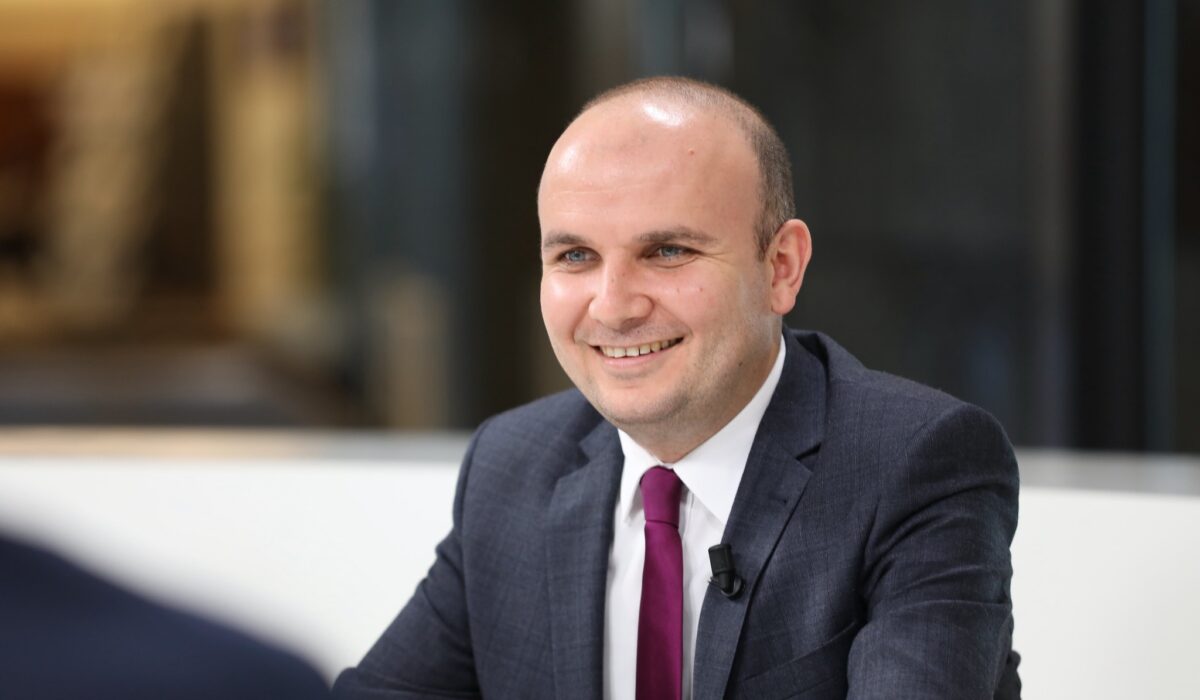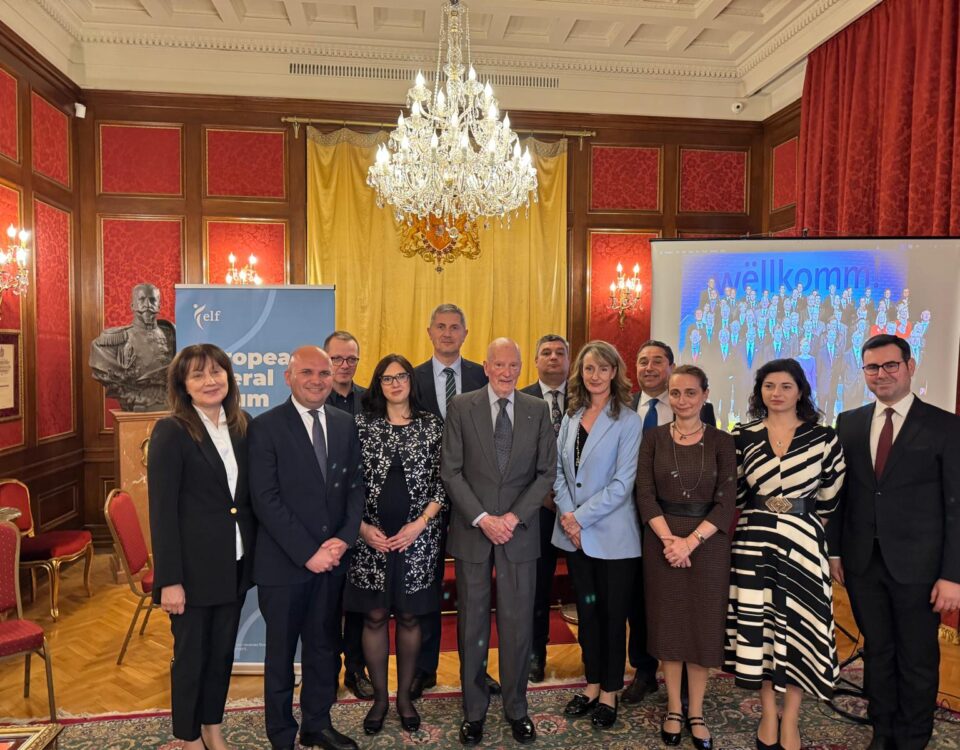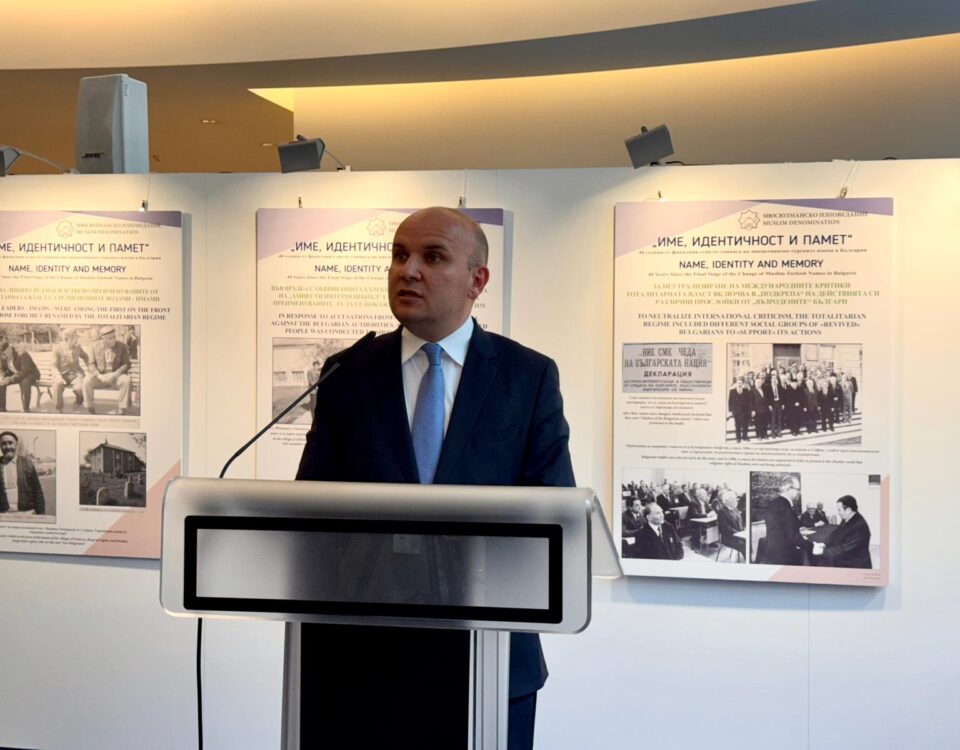
Kyuchyuk: Good neighborliness is an integral part of the negotiating framework with North Macedonia
July 7, 2020
Kyuchyuk: I expect creation of stable majority in North Macedonia
July 21, 2020There is a common understanding that the Next Generation EU instrument should be based on the green and digital transitions
Еuropost: The European Commission presented last week draft negotiating frameworks for Albania and North Macedonia. How do you assess these proposals and do you consider that the Council will give them green light soon?
Kyuchyuk: The proposed two draft negotiating frameworks are another important step in the enlargement process for North Macedonia and Albania. They present the starting points on the ground of which the Council must find compromise on the guidelines and principles of accession negotiations with each candidate country. This approach is based on the new EU enlargement methodology, which aims to make the process more credible, predictable and policy-oriented, while ensuring that countries make progress in the negotiations on their own merits. This fact makes me optimistic that we will soon see a positive development on the part of the Council. Moreover, despite the difficult situation in which Germany is taking over the EU presidency, it does not reject the EU enlargement as one of its main priorities.
Еuropost: You said recently, in a joint statement with your MEP colleagues of S&D and EPP, that North Macedonian elections are a crucial test of democratic maturity. Does the election campaign in the country portend any shocks?
Kyuchyuk: I am following closely the election campaign in North Macedonia and I am impressed by its dynamics and the efforts of the separate parties and candidates to inform and mobilise the voters. The vote on 15 July will be a crucial democratic test for the citizens of North Macedonia, because the fundamental question between the political forces in this campaign is whether the country should return three years backwards. A part of the political elite supports this thesis. The other one insists that the EU presents the future of the country and that strong political courage is shown in the name of this future, with the signing of historic agreements with Bulgaria and Greece, as well as carrying out reforms for the sake of future generations. I cannot predict the elections outcome, but I strongly hope that after that a stable majority will be formed, which will be able to assume political responsibility, and that will have clear priorities related to the European future of the country.
Еuropost: When do you think it will be realistic to hold the first intergovernmental conferences, which will actually start the negotiations, and can the candidate countries speed up or slow down this process?
Kyuchyuk: The process goes in two directions. Member States need to adopt the framework texts as soon as possible, in order to hold the first intergovernmental conferences by the end of the year. At the same time, North Macedonia and Albania need to prepare their part. In the case of Albania, there are several previously determined implementation reforms, but both the Albanian Government and the new North Macedonian Government need to draw up their accession roadmap based on a broad political consensus. However, the ultimate objective for the two countries is to fully adopt the EU acquis and to ensure full implementation and enforcement after the EU accession.
Еuropost: Mr. Kyuchyuk, an important meeting of the European leaders is forthcoming in the next few days, when a decision must be taken on the next long-term EU budget, which includes the new instrument Next Generation EU. Do you expect a breakthrough during the meeting, taking into consideration the disagreement in opinion between the countries?
Kyuchyuk: The European Commission has come up with a solid proposal for recovery and a long-term budget, exceeding expectations which were quite bold. The general feeling, however, is that at this stage the dividing lines between the countries are difficult to overcome and a consensus at the forthcoming meeting is unlikely to be reached. There is a common understanding that the Next Generation EU instrument must be based on the green and digital transitions on our continent. The beneficiary countries need to take the necessary measures in order to make their economies competitive and their public finances sustainable, but there is no agreement on how this should be done. Should more grants or more loans be provided is an important point, but the issue of European solidarity is more important, as well as the question whether we are able to get out of the coronavirus crisis united like a family? The situation is very similar to the migrant crisis, on which we still cannot find a consensus on a common European approach. I hope that in the coming days, the Presidents of the Council and the Commission will harness all their resources in order to change the status quo and to bring the positions of the Member States closer and, ultimately, the summit to be able to produce a positive result.
Еuropost: What concessions is the European Parliament prepared for when voting on the budget, and where are the “red lines” set by your Renew Europe Group for compromises in this regard?
Kyuchyuk: The European Parliament has clearly stated its position that any retrograde step in relation to the preliminary proposed plan by the Commission would be unacceptable, and it would be difficult to support such a European budget. At the same time, we believe that it is essential, even urgent, to reach an agreement on the EU’s own resources and to vote on legislation in this regard, because the resources will be a key future financial instrument.
The “red lines” for the Renew Europe Group in the debate on how the European budget should be designed are about tying it up to the rule of law. We strongly urge that we place our European values at the heart of the EU budget by introducing a rule of law mechanism clause applicable to the entire Multiannual Financial Framework of the EU 2021-2027 and by suspending the funding of countries which deviate from the European route.
Еuropost: Is the fight over after the plenary vote on the controversial Mobility Package I, which will throw thousands of companies from Bulgaria, Poland, Romania, Hungary and other countries out of the EU road transport market?
Kyuchyuk: In the short term, we will expect the European Commission to make a legislative impact assessment, which is requested already for September. If the Commission also takes into account what the reports of various institutes indicate – that the provisions for returning of trucks envisaged in the Mobility Package can lead to increase in carbon emissions and congestion of the thoroughfares, we will then insist on a new amendment to the regulation. In the long run, the Bulgarian government could request the repeal of the legislation before the Court of Justice of the EU – Lithuania and Poland have already stated such an intention.
Еuropost: During your tenure as MEP, do you remember another similar case of gross contempt for the arguments of the concerned countries and of imposing protectionist and discriminatory provisions on the EU’s peripheral countries?
Kyuchyuk: It is difficult to reach a consensus in the European institutions on any controversial issue. Countries often achieve their objectives because they have a common policy within the Council and the European Parliament. Unfortunately, this was not the case with the Mobility Package. We did not take advantage of the significant position we had in the Council during the Bulgarian Presidency. After that, it became extremely difficult for us in the European Parliament to change the direction in which the situation has developed. Although we have made huge efforts with our colleagues from all the political groups and we have achieved partial success on some separate points, the final result is there.
Еuropost: You follow also closely the negotiations between the EU and the United Kingdom. Are you worried about the lack of progress in the talks six months before the end of the transition period?
Kyuchyuk: The signals coming from the UK show that ending the transition period without withdrawal agreement is the more likely scenario. Such are the attitudes in the EU already. Surely, the negotiations are far from being over. There is still a chance for a solution to be found which suits both countries, but it is high time for the UK to realise that it has left the European Union on a voluntary basis, and it could not selectively take advantage of the privileges which the EU provides within the single market. For us – the 27 Member States, the ecosystem of the single market is inviolable and it entails obligations. We stay united on the issue that we cannot agree to a deal without equality and guarantees for fair trade and competition, and which does not protect the interests of our businesses, our farmers and all European citizens.
Еuropost: Renew Europe launched in April the European Alliance for a Green Recovery, which brings together politicians, business leaders, trade unions, non-governmental organisations and think tanks. What are the specific goals that this alliance sets for itself?
Kyuchyuk: In the height of the Covid-19 pandemic, a certain group of politicians tried to use the resulting health and economic crisis to put the future of the Green Deal in jeopardy. As a European-wide call for green investment to be mobilised and for recovery and transformation plans to be devised, this alliance could not have come at a more appropriate moment, as it showed that – despite the challenging situation – civil society, businesses and politicians are united in combating climate change and preserving biodiversity. We are moving in the right direction, with the European Parliament Committee on Regional Development adopting just days ago one of the political priorities laid out by Renew Europe – the report on the Just Transition Fund (JTF). This key instrument for achieving climate neutrality will ensure just transition for the regions that face challenges stemming from their dependence on fossil fuels.
Еuropost: The novel coronavirus pandemic has been a test for everyone. How well did the EU do in that situation, and how do you explain the fact that Europe, which boasts the most developed public healthcare infrastructure in the world, was hit so hard?
Kyuchyuk: The pandemic played the role of a stress test for the European Union, highlighting how poorly prepared Europe is to respond to such situations. Individual Member States have highly developed public healthcare systems, but the fact that healthcare is a matter of national competence encouraged them to adopt their own approaches in fighting a virus that has cross-border impact. Chaos ensued: closed borders, absence of a coordinated approach, and lack of solidarity. On the other hand, Europe also paid a steep price for its reliance on cheap labour and import of medical and sanitary supplies from China. We are now looking into ways to get manufacturing capacity back to Europe so we can be better prepared. We must learn from this awful experience with Covid-19 and work together to set the foundation and make sure that the EU will be better equipped to have a more unified and coordinated response to future health crises.
Еuropost: How does the novel coronavirus change Europe’s agenda and will the European citizens be heard when deciding on the new priorities?
Kyuchyuk: We have an upcoming conference on the future of the EU. Ten years since the Treaty of Lisbon entered into effect and 70 years since the Schuman Declaration, it is time for us to analyse the state of the European democracy and our decision-making processes. The coronavirus crisis is just the latest argument justifying such a critical review, not an obstacle to it. Covid-19 clearly showed us that Europe is far from a finished product and needs a reboot. The world is changing and geopolitical layers are shifting. If we want to avoid getting squashed between global players, we need a different European Union, a union that is able to protect the interests of our citizens. As currently constructed, the bloc is not equipped to do so.
Тази публикация е достъпна и на следните езици: Bulgarian




